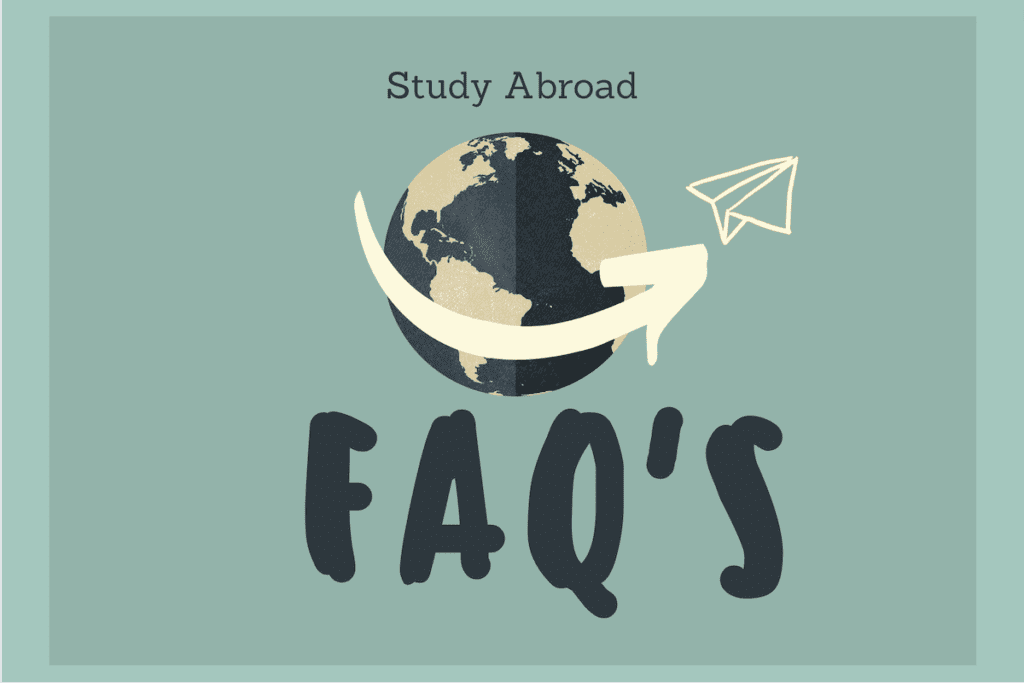Most Important Questions Students Ask About Studying Abroad-What We Need to Know Before Going to Study Abroad
Deciding to study abroad is a significant step that comes with a multitude of considerations. To help you navigate this journey, here are the top 10 questions students typically ask about studying abroad, along with detailed answers.
1. What are the best universities or programs for my field of study?
Answer: Selecting the right university or program is crucial for your academic and professional future. Start by researching universities known for excellence in your field. Look into their course offerings, faculty expertise, and available resources. Rankings, alumni success stories, and academic reviews can also provide valuable insights.
2. What are the costs of tuition and living expenses in the host country?
Answer: Understanding the financial commitment is essential. Research the tuition fees for your chosen program and estimate living expenses such as accommodation, food, transportation, and other daily costs. Create a detailed budget and look into cost-effective options to manage your finances.
3. Are there scholarships, grants, or financial aid options available for international students?
Answer: Many institutions and organizations offer financial assistance to international students. Investigate scholarships, grants, and financial aid opportunities available through your home university, the host institution, and external bodies. Applying for multiple funding sources can help ease the financial burden.
4. What type of visa do I need, and how do I apply for it?
Answer: The visa process varies by country. Research the specific visa requirements for students in your host country and start the application process early. Ensure you have all necessary documents, such as your acceptance letter, financial proof, and health insurance details, to avoid delays.
5. What are the accommodation options and their associated costs?
Answer: Explore different housing options available to international students, such as university dormitories, private rentals, and homestays. Compare costs, locations, and amenities to find the best fit for your needs. Securing accommodation in advance can help you settle in smoothly.
6. How do I ensure the credits I earn abroad will transfer back to my home institution?
Answer: Credit transferability is critical for maintaining your academic progress. Consult with your home institution’s academic advisor to confirm the transfer policies and obtain written approval for the courses you plan to take abroad. This ensures that your hard work will count towards your degree.
7. What cultural differences should I be aware of, and how can I prepare for them?
Answer: Cultural awareness is key to a successful study abroad experience. Research the cultural norms, social etiquette, and daily life in your host country. Engaging in pre-departure orientation sessions and connecting with current or former international students can provide valuable insights.
8. Can I work part-time while studying abroad, and what are the regulations around this?
Answer: Many countries allow international students to work part-time, but regulations vary. Check the host country’s rules regarding student employment, including permitted work hours and types of jobs. Working part-time can help with expenses and provide valuable experience.
9. What health services are available for international students?
Answer: Knowing where to access health services is essential for your well-being. Research the health services provided by your host university and local healthcare facilities. Ensure you have adequate health insurance coverage and understand the procedure for seeking medical help in case of emergencies.
10. How will studying abroad impact my career prospects?
Answer: Studying abroad can significantly enhance your career opportunities. It demonstrates adaptability, cross-cultural communication skills, and independence. Highlight your international experience on your resume and leverage it in job interviews to stand out to potential employers.
Conclusion
These top 10 questions address the most critical aspects of studying abroad. By thoroughly researching and preparing for each of these areas, you can ensure a rewarding and successful experience. Studying abroad is an incredible opportunity for growth, learning, and adventure, so make the most of it by being well-informed and proactive.
If you have more questions or need further assistance, please don't hesitate to contact us. We're here to help you every step of the way on your journey to studying abroad.






